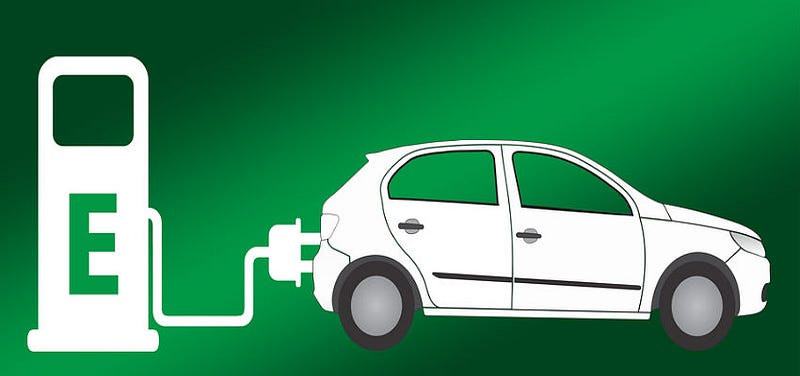Electric Vehicles Market In India

The government of Bharat in its latest budget extended many new announcements to spice up the retardation automobile economy, as well as a bunch of reforms for remodeling the electronic vehicles market. during this post, we tend to highlight the nuances of the booming electrical vehicle trade and conjointly forecast prospects of investment during this forthcoming section.
Why is Bharat the correct marketplace for electrical Vehicle development?
Various freelance and government surveys have shown that besides a wonderful future for electrical vehicles, it’s the 2 and three-wheeler electrical vehicles that square measure slated to indicate the best growth. we tend to presently have one.5 million electrically high-powered three-wheelers on the road. Bharat is additionally the third-largest automobile market within the world, creating it the electrical Vehicles section a robust consumer-driven business. With the planet attention shifting to the adoption of cleaner technologies with smallest environmental impact, the longer term of the electrical vehicles trade looks bright, albeit with many challenges.
Government Schemes for electrical Vehicles
1.FAME — quicker Adoption and producing of Hybrid and electrical Vehicles
This theme, with associate degree outlay of ten,000 crores has primarily been created for investment in charging stations with participation from each non-public businesses and also the public sector. comes for rising infrastructure create mentally a faster-charging dock for little vehicles and bigger charging docks for buses and significant vehicles. Original instrumentation makers are given incentives like subsidies underneath the theme for innovation, fitting charging networks, simplifying the method of operation and installation electrical vehicles. Buses priced up to two crores, hybrid vehicles underneath Rs fifteen lacs, three-wheelers underneath Rs five lacs and two-wheelers underneath Rs one.5 lacs will avail incentives underneath the theme.
2. Tax rebates to consumers of electrical vehicles
Besides providing subsidies to makers, the budget free by minister Nirmala Sitaraman earlier this month created the government’s intention of promoting the buyer aspect of the electrical vehicles trade terribly clear. whereas automobile loans for ancient vehicles square measure simply accessible and provide lots of straightforward finance choices, the electrical vehicles are priced higher.
To ease the burden on the customer and facilitate finance, associate degree taxation rebate of up to one.5 lacs on the interest element of loans taken by customers to shop for electrical vehicles is offered, with a complete of two.5 lacs over the complete loan amount.
Moreover, impost exemption on lithium-ion cells has been declared to cut back the value of mercantilism this essential element of electrical vehicles, and several other new exemptions underneath direct and indirect taxes square measure two-wheelers for producing inputs for the electrical vehicles trade.
3. Training courses on electrical Vehicles
Ministry of talent Development and Entrepreneurship has conjointly declared new ITI courses on electrical Vehicles to take care of a gradual and trained men able to strive against the rise in demand.
Comparing the Indian industry with Developed Markets like China
The International Energy Association information reports that China is that the quickest growing trade once it involves electrical vehicles. China has obligatory strict restrictions on investments in new gas or diesel plants and plans to sell four.6 million electrical vehicles by 2030. Similarly, Japan has conjointly offered support to its domestic manufactures for export of electrical vehicles associate degreed has framed an formidable target of reducing emissions from conveyance sources by eightieth. Thus, if Bharat doesn’t capitalise on its expansive industry, upgrade its existing infrastructure and train shoppers and men to adopt this technology, many countries would stand to realize. The NITI Ayog is additionally considering a proposal to ban all ancient combustion engine vehicles by 2025.
Challenges
While a rise in gas and diesel excise duty, parking cess, congestion taxes etc square measure necessary for shifting demand towards the utilization of electrical vehicles, they’re at the tip of the day forced and artificial suggests that. A general drawback relating to the utilization of electrical vehicles is that the lack of infrastructure that Bharat must power its retardation industry, and a modification within the general perception relating to pollution, congestion and air quality impacts of vehicles that use ancient fuels.
Since the celebrity theme, section two shifts its concentrate on charging — metal battery assumes bigger significance. one in all the main issues within the electrical Vehicles trade is that the lack of accessibility of metal and alternative parts that structure the composition of a chargeable battery.
Manufacturers UN agency invest in developing electrical vehicles and its parts just like the lithium-ion battery etc square measure secure incentives by the central government. it’s conjointly believed that a correct utilisation mechanism for electronic waste like previous computers, cellular telephone batteries etc may be wont to extract metal that may be utilized in the electrical vehicles’ battery creating method.
For more information Click here